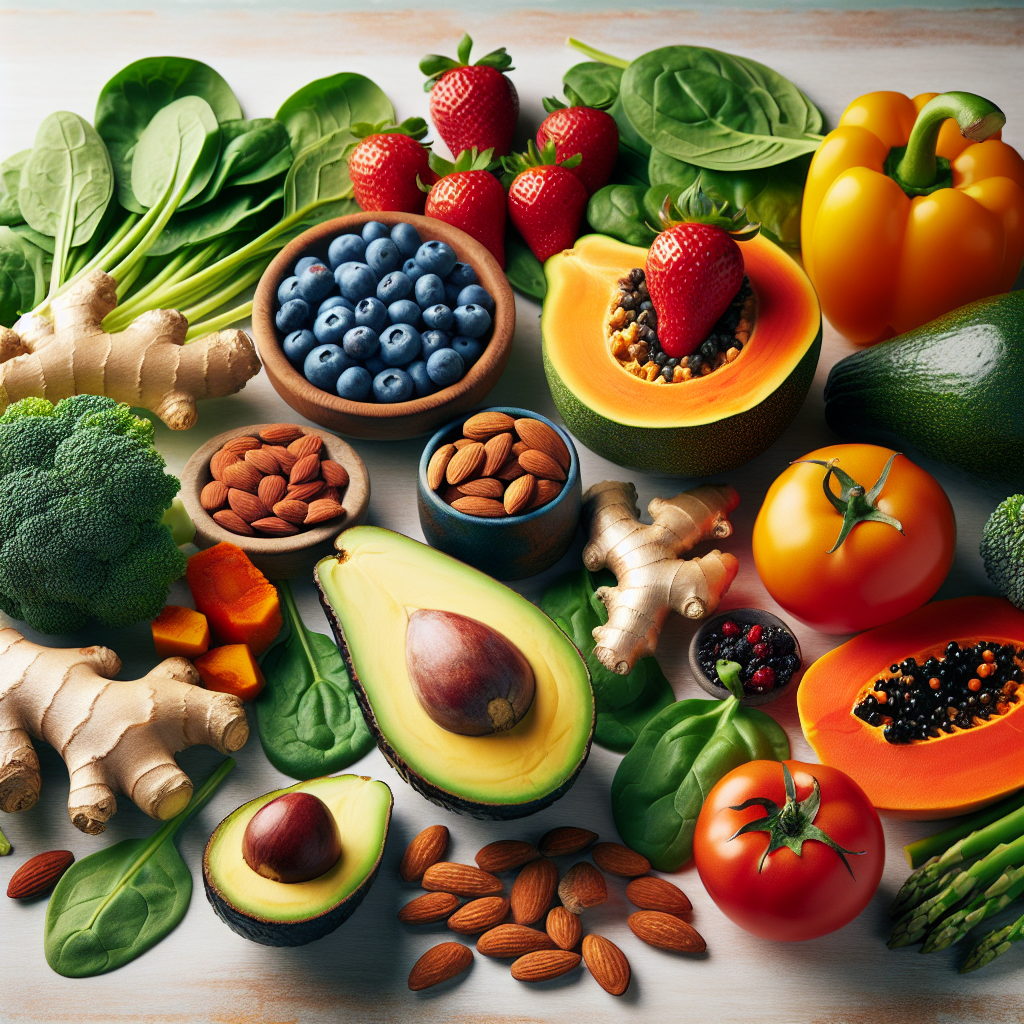-
Table of Contents
10 Anti-Inflammatory Foods That Fight Disease

Inflammation is a natural response of the body to protect itself from harm. However, chronic inflammation can lead to various health problems, including heart disease, cancer, and autoimmune disorders. One of the most effective ways to combat inflammation is through a healthy diet. This article will explore ten anti-inflammatory foods that can help fight disease.
1. Berries
Berries are packed with fiber, vitamins, and minerals. They are also rich in antioxidants, which have anti-inflammatory effects. A study published in the Journal of Agricultural and Food Chemistry found that berries could reduce inflammation and oxidative stress in the body. Some of the most potent berries include strawberries, blueberries, raspberries, and blackberries.
2. Fatty Fish
Fatty fish like salmon, mackerel, sardines, and trout are high in omega-3 fatty acids, which have been shown to reduce inflammation. A study in the Journal of the American College of Nutrition found that omega-3 fatty acids could decrease the production of molecules and substances linked to inflammation, such as inflammatory eicosanoids and cytokines.
3. Broccoli
Broccoli is a powerhouse of nutrients, including antioxidants and sulforaphane, which have potent anti-inflammatory effects. Research published in the Journal of Clinical Immunology found that sulforaphane could reduce inflammation by lowering oxidative stress and activating the Nrf2 pathway.
4. Avocados
Avocados are rich in heart-healthy monounsaturated fats, which have anti-inflammatory properties. They also contain carotenoids, tocopherols, and phytosterols, which can reduce inflammation. A study in the Journal of Nutrition found that consuming an avocado a day could reduce the levels of inflammatory markers in the body.
5. Green Tea
Green tea is packed with antioxidants, particularly epigallocatechin gallate (EGCG), which has been shown to reduce inflammation. A review published in the Journal of Nutritional Biochemistry found that EGCG could inhibit the production of pro-inflammatory cytokines and chemokines, thereby reducing inflammation.
6. Peppers
Bell peppers and chili peppers are rich in antioxidants and vitamin C, which can reduce inflammation. They also contain capsaicin, which has been shown to have anti-inflammatory properties. A study in the Journal of Clinical Biochemistry and Nutrition found that capsaicin could inhibit the activation of a specific pathway involved in inflammation.
7. Mushrooms
While there are numerous varieties of mushrooms, certain types like lion’s mane, shiitake, and portobello have been shown to have anti-inflammatory properties. They are rich in phenols and other antioxidants that can reduce inflammation. A study in the Journal of Medicinal Food found that these mushrooms could inhibit the production of pro-inflammatory cytokines.
8. Grapes
Grapes are rich in anthocyanins, which have anti-inflammatory effects. They also contain resveratrol, a compound that has been shown to have anti-inflammatory properties. A study in the Journal of Nutrition found that consuming a diet rich in grapes could reduce inflammation and lower the risk of heart disease.
9. Turmeric
Turmeric contains a powerful anti-inflammatory compound called curcumin. Research published in the Journal of Alternative and Complementary Medicine found that curcumin could reduce inflammation by inhibiting the production of pro-inflammatory cytokines.
10. Extra Virgin Olive Oil
Extra virgin olive oil is one of the healthiest fats you can eat. It’s packed with monounsaturated fats and antioxidants, which have anti-inflammatory properties. A study in the Journal of Nutritional Biochemistry found that the antioxidants in extra virgin olive oil could inhibit certain genes and proteins that drive inflammation.
Conclusion
In conclusion, incorporating these ten anti-inflammatory foods into your diet can help reduce inflammation and lower the risk of disease. However, it’s important to remember that diet is just one piece of the puzzle. Regular exercise, adequate sleep, and stress management are also crucial for maintaining a healthy inflammatory response. Always consult with a healthcare professional before making any major changes to your diet or lifestyle.









